Vanisi Chimpaye, a pregnant refugee from Congo is happy to be here in United States but frustrated and distraught because of alleged civil rights abuses and her deteriorating living conditions since arrival in Dayton Ohio Summer 2015.
The pregnant Congolese refugee is here with three children. Her husband did not make the trip. He missed resettlement processing at the Refugee Camp in Uganda. On arrival, Ms. Chimpaye was processed by the Catholic Social Service of Miami Valley (CSSMV).
It’s been a bitter sweet experience for the new arrivals; they do not speak English but were glad to be in the land of the free. Many like Ms. Chimpaye are here in United States to escape ethnic violence, gang violence, human trafficking, and extreme poverty in their home countries.
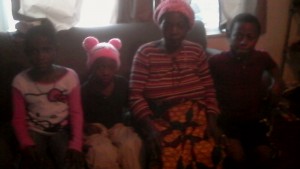
A REFUGEE is a person who has fled or who has been forced to leave the security of their home country due to a well-founded fear of persecution on account of race, religion, nationality, membership in a particular social group, or political opinion. Oftentimes they leave suddenly and with few possessions. Millions have spent decades in refugee camps, unable to return home. Individuals granted refugee status overseas by the Bureau of Population Refugee and Migration and U.S. Department of Homeland Security are admitted to the U.S. for resettlement.
According to information on the website of CSSMV “ Newly arrived refugees in Dayton receive supportive services from CSSMV’s Refugee Resettlement Program for placement in initial furnished housing, a cultural orientation overview, employment assistance and linkage to community resources such as referral to ESOL services and medical services” According to a 2015 report from the United Nations High Commissioner for Refugees (UNHCR), as of the end of 2014, 19.5 million people around the world had been driven from their homes by armed conflict, persecution, natural disasters or other causes.

“We are grateful to America but with three children and a baby on the way, this one bedroom apartment is not good for our family” She said through Yvonne Nyantungane,a translator, as tears welled up in her eyes. The children: 11 year old son, Samuel Baribusaand, 9 year old daughter, Joirese Nyirabarata, and another 6 year old Son, Manasi Bahati, all hugged closer to their mother on a dingy green sofa in their living room.
From the time my family and I arrived, we received extremely poor service and we were only provided with plastic plates and cups. We were taken to a food bank to collect can food which we are not used to; these went on for weeks until we were given food stamps. Our first apartment was terrible, and once we complained in hopes of being placed in a better home, we were placed in worse housing. Ms. Chimpaye said through the translator.

To be sure, Ms. Chimpaye new one bedroom apartment on 56 Pulaski St, Dayton, OH 45402-2853 is dirty, the ceilings are broken, and the bathroom tub has rusted pipes aching with old age. Paints on the walls are peeling in the corner and kitchen cabinets are dangling on the hinges. The mosquito net on the front door is all torn and the porch is covered with dirt and dust. In a section of the living room sits a queen bed, which the pregnant mother uses because there is only one bedroom. The bedroom itself is chocked-up with three metal beds on each corner of the room; clothes and belongings are strewn on the tiny space left in the cluttered room.
“As you can see, this apartment not a healthy living space for my 3 children my family needs a clean, safe environment which will enable us to live healthy lives in America” She said. Ms. Chimpaye said she fears that her children, who are all young, may become sickened by the insects flying into the room and mouse droppings hiding in corners of their bed.
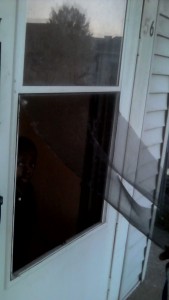
She said she asked the case worker from Catholic Social Service of Miami Valley for help but to no avail. She has other grave allegations: “ The social worker came here yesterday ( Tuesday November 2, 2015) and asked me to sign some paper that I don’t understand…when I asked them to explain what I am signing, they threatened to deport me back to Refugee Camp in Uganda, if I don’t sign right away” Ms Chimpaye said through the translator.
These allegations are serious given that Dayton Mayor, Nan Whaley just recently joined with 17 other U.S. mayors asking president Obama to increase the number of asylum-seekers America will take in. She said Dayton is prepared to help the administration address the humanitarian crisis by welcoming refugees if they are placed here. “It’s a welcoming, open community, and that’s one of our core values,” she said. “Should they be placed here, we are happy to make sure they are successful. Mayor Whaley’s heart seems to be in the right place but does the City has any mechanism to ensure accountability and ensure agencies like CSSMV are resettling these refugees in humane manners?

According to Mr. Mugo Kiswile, an advocate with African Christian Community Center (ACCC), the answer to that question is capital no. Mr. Kiswile said he has raised several complaints on behalf of refugees with CSSMV, the Dayton Human Relations Council and Welcome Dayton but got no tangible result. “Some houses allocated to refugees do not meet basic housing codes. Sewer drains are sometimes exposed in living areas, windows are often not fixed, and electrical switches usually are broken. One refugee was placed in an apartment whose door has never had a door knob, but has a hole and Just about every property has expired batteries in the smoke detectors, and beeping noises can be heard” He said.
“I have written so many letters but my efforts have been frustrated. The problems are so many. For example, a refugee that came over recently, Mr. Hassan Mohammed from Eritrea was nearly beaten to death because of the carelessness with which Catholic Social Services seems to place refugees. He was severely beaten by gang members and was in the hospital with life-altering injuries. “There was the case of Gentille Uweraa Rwanda refugee who was placed with another refugee Maezda Lemaichu since arriving in Dayton this past July. I met with Michael Murphy, Theresa and Stephanie at Catholic Social Services shortly after that and explained that Gentille was not comfortable with no personal space but the refugee got no tangible help” said Mugo Kiswile.
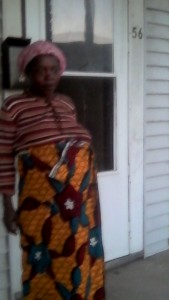
“There was also the case of Grory, Baby daughter of Uwera who was placed at 3707 E.Third Street, Dayton, OH 45403. She was having problem with lead paint at the apartment. We took the baby to see Dr. Dana Drazner L.MD, a doctor at Dayton Children’s Hospital. The physician advised that “If child lives in older home (house) with possible lead paint a routine lead screening blood test will be performed to check level of lead in blood. Yet, CSSMV continues to place refugee families in such older apartment homes” said Mr. Mugo Kiswile .
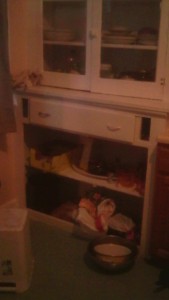
When contacted, Regina Estep the Director – Public Relations and Development for CSSMV states: “We can assure you that all concerns that are brought to our attention are reviewed and a plan of action is developed to resolve issues. We are committed to providing resettlement support to meet the needs of our refugee clients” In a follow-up phone conversation. Ms Estep said she is aware of Ms. Chimpaye’s case but not at liberty to comment on any specific case. When asked about the housing condition of Ms Chimpaye, the spokesperson for CSSMV said: “We are working with various partners including landlords to find affordable housing in the Dayton area for our refugee clients. When asked about the allegation that CSSMV staffers made Ms. Chimpaye sign documents without a translator, Ms Estep denied the claim “Such a practice is not appropriate and is against our policy but since I was not there when those documents were signed, I will have to double check and get back to you” She said. In an email statement Regina Estep said:“Although CSSMV utilizes multiple local language interpretation services at the meeting you referenced (Nov. 5) the client was provided interpretation via Vocalink Inc.. Kinyamulenge, (The language listed on the client’s bio-data supplied by the United Nations and the International Office of Migration,) was the language used for interpreting the meeting.” Regina Estep denied the claim that Ms. Chimpaye was threatened with deportation if she refused to sign.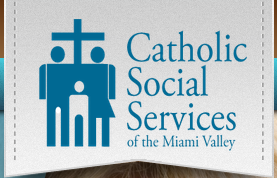
On the issue of the grievance process for a refugee who wishes to lodge a complaint, Regina Estep states“Refugees are encouraged to discuss concerns with their case manager. If there is no resolve, they may request to speak to the Refugee Resettlement Manager. An internal review is conducted by the manager to find a solution to the concern. If the concern is not resolved, the agency’s Social Service Director, the Quality Assurance Coordinator and the CSSMV Chief Executive Officer review the complaint to seek resolution. If agency is not able to resolve the issue, a client may contact Migration and Refugee Services at the U.S. Conference of Catholic Bishops, The Montgomery Department of Job and Family Services or the State of Ohio Refugee Office to continue the grievance process. The Refugee Resettlement program also provides a 90 day Reception and Placement closure customer service survey, these surveys are translated and if needed interpreted for clients needs, all surveys are confidential and are used internally for continued feed back for customer service satisfaction”..“This arrangement looks good on paper but it does not work” said Mugo Kiswile.
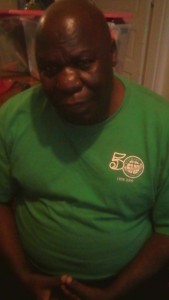
So what is the City of Dayton doing? Catherine Crosby, the executive director of Dayton Human Relations Council said the Council and the City of Dayton are both aware of the concerns. “Most of the concerns are housing problems and we have to separate these from the work of Welcome Dayton. We are aware of the recent case of the pregnant Woman from Congo and our Civil Right Specialist, who handles fair housing issues, is working the case. Katy, as she is fondly called adds: “We have escalated the matter to the City Manager but part of the problem, as I understand it is that CSSMV get so little money to resettle these refugees and we are trying to explore additional options within the city to determine how we can improve housing options for individuals arriving in the US to Dayton”
Melisa Bertolo, the coordinator of Welcome Dayton echoes her boss’s statement. She explained that Welcome Dayton works to ensure immigrant integration and to create a welcoming community. We do this through direct outreach and education to immigrants and refugees, working internally within the City government, and through facilitating community projects and events. “Through our community engagement, we have been made aware of concerns about housing refugees are being placed in. Any time we receive these types of concerns, we refer them to Joshua Ward for fair housing investigation”


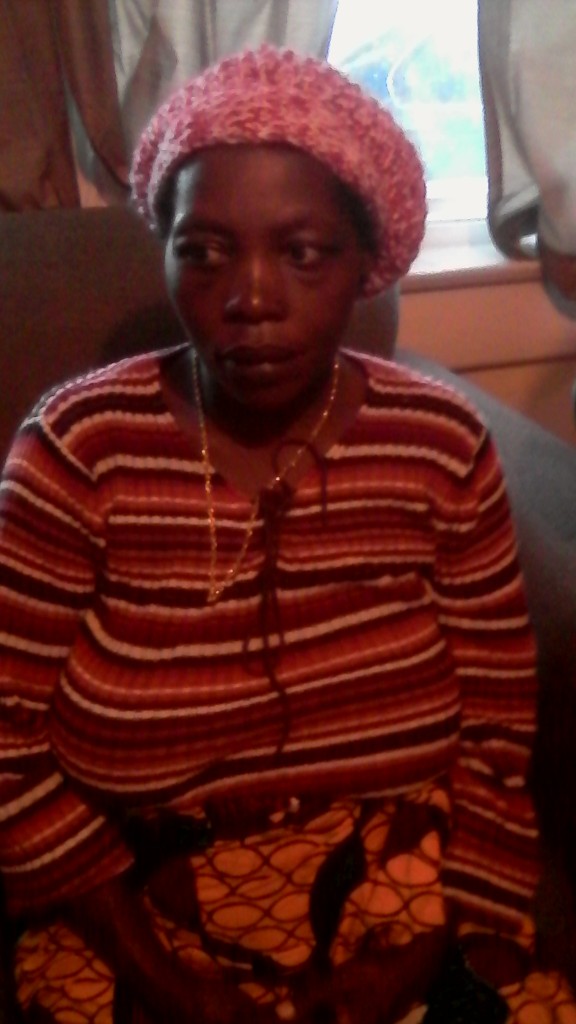


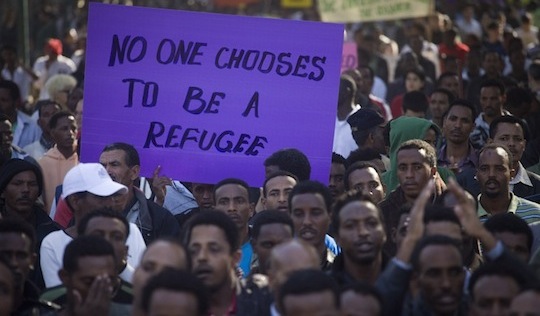
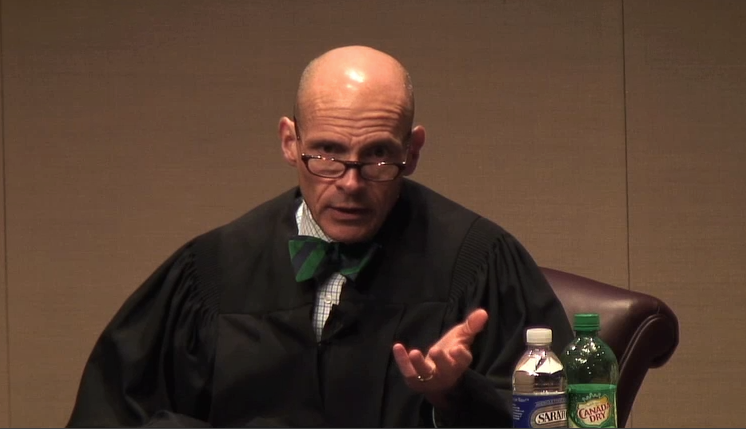
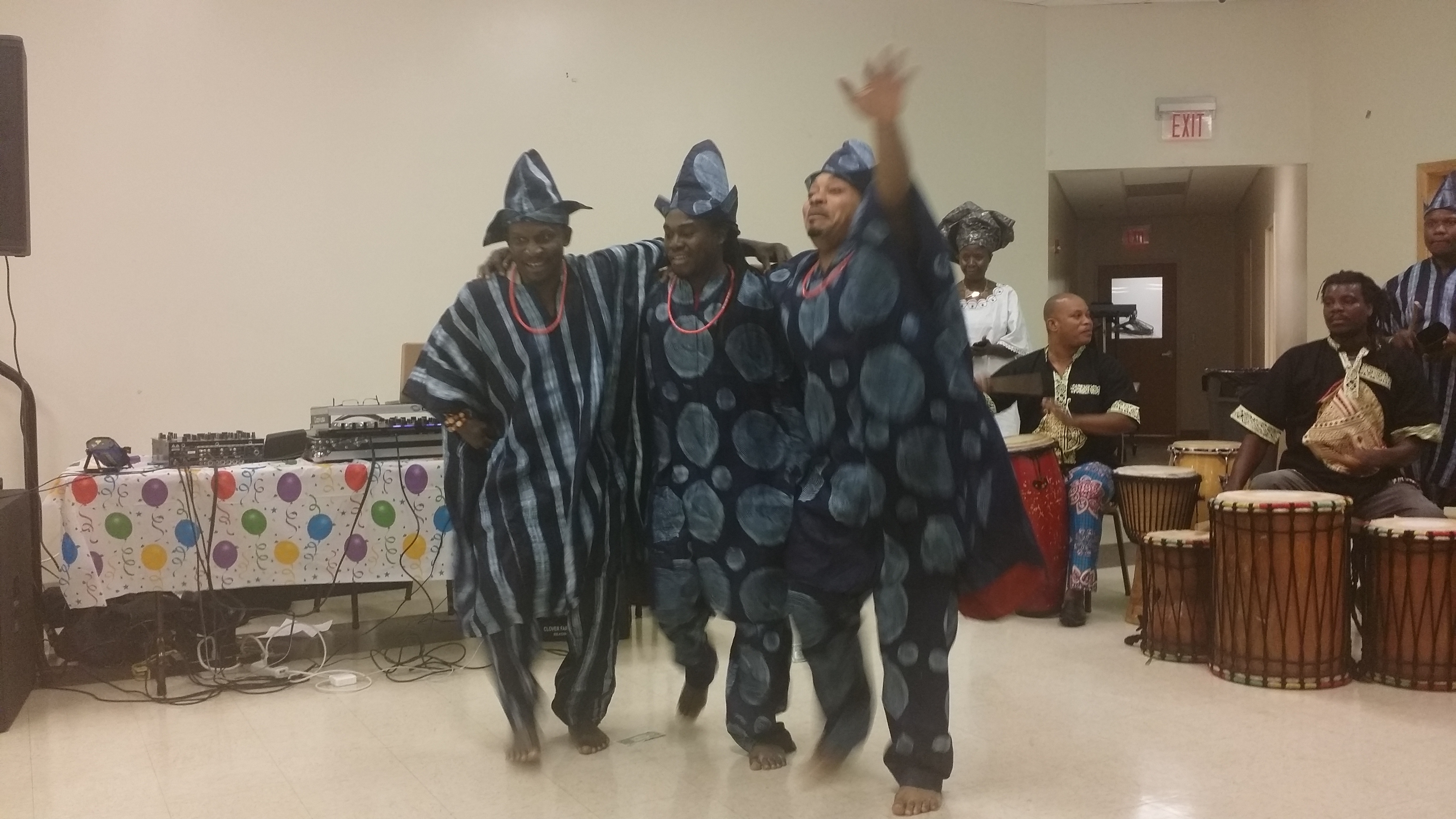
First of all,I thank whoever took this initiative to raise up the voice for refugees. I hope it will bring a change and improvement to the refugee resettlement system in Dayton.
I will just say that this is a drip in a bucket, I know the author could not mention everything here I wish IOM could conduct a survey on how refugees are being received. Even Mrs.Cimpaye was received in small house in bad condition,I am grad she was not received in bed bags populated house what was one of the main issues for houses where refugees were received.
Peter, I understand you are disappointed by African Community. however, they are some who have been trying to do something to help these people. Personally,I tried to restart the African Community in 2014 and we had a successful meeting at first time,but we never went far because some of the members never understood that there were some people who never wanted us to go far. We had people who were pretending to join us in order to help us, but their first mission was to destroy our organization.I wish I have met you before so we could work together to help these people.
Dieudonne
By the rules forrefugees resettlement this should not be happening.
Kay
This is not acceptable! It looks like institutional racism because AFSC has been raising similar issues since 2008 when refugees from Burundi were resettled in Dayton. It is now becoming obvious that refugees of African descent are not treated humanely during the resettlement process.
Thank for the story. You have actually used the power of the media to lift up the voices of the voiceless.
Migwe
I appreciate this reporting, however, I am extremely disappointed in the lack of effort on the part of the African community as a whole, in advocating for the rights of all Africans, refugees, continental or diasporean. Many of us come in here and become very self-centered and care less for the rest and in that respect, Africans like Mrs Chimpaye will continue to be abused by the very system that assumes their care .
I do thank you for posting these kinds of reports and perhaps we will wake up some day.
Peter Ijeh.